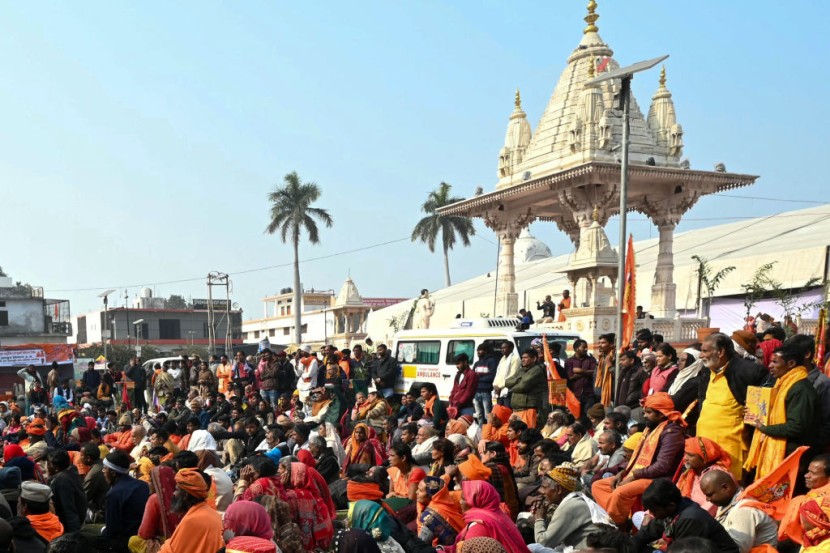Indian Prime Minister Narendra Modi opened the controversial Ram Temple in the northern city of Ayodhya on Monday, Jan. 22, delivering on a crucial Hindu nationalist pledge that his governing party hoped would keep him in power for a third successive term in the next general elections.
The Associated Press reported that the temple dedicated to Rama—an avatar of the Hindu god Vishnu—was built over the ruins of the 16th-century Babri Mosque which Hindus believed were then built upon the site where Rama was allegedly born as depicted in the Ramayana. Despite it still being under construction, the temple fulfilled the long-standing demand of millions of Hindus who worship the deity.
Modi's party and other Hindu nationalist groups who seized on the demand said that the temple was central to their vision of reclaiming Hindu pride after centuries of Mughal rule and British colonialism.
The prime minister was one of the first worshippers to enter the temple as it was consecrated by Hindu priests in the opening ceremony. He said that the temple was built after "countless sacrifices," and was also a testament to a rising India "breaking the shackles of slave mentality."
"Our Lord Ram has arrived after centuries of wait," he told the nearly 7,500 attendees congregating outside the temple.

The site has long been a religious flashpoint between Hindus and Muslims, which included the demolition of the mosque and the subsequent bloodshed on both sides.
The dispute culminated in 2018 with the Indian Supreme Court's decision to award the site to the Hindus while providing the Muslims with a patch of land to build a mosque to replace the one that was demolished.
Modi's Fusion of Religion and State
Modi has been the face of an unprecedented and unapologetic fusion of faith and politics in officially secular India, visiting several Ram temples over 11 days as part of a Hindu ritual prior to the consecration of the Ayodhya temple.
Analysts and critics familiar with Indian politics saw Monday's ceremony as the beginning of Modi's election campaign, which sought to promote Hinduism in Indian society and political life and further erode the separation of religion and state in the country.
"Prime ministers prior to Modi have also been to temples, been to other places of worship, but they went there as devotees," Nilanjan Mukhopadhyay, an expert in Hindu nationalism and author of a book on Modi, said. "This is the first time that he went there as somebody who performed the ritual."
The temple is yet to receive its doors and finish its intricate wall ceilings, prompting four key Hindu religious authorities to boycott the event as they believe that consecrating an unfinished temple went against Hindu scriptures.
Modi's political opposition - including the Congress Party - also boycotted the event, claiming that he was exploiting the temple to get ahead and garner political support for the upcoming elections.
© 2026 HNGN, All rights reserved. Do not reproduce without permission.








